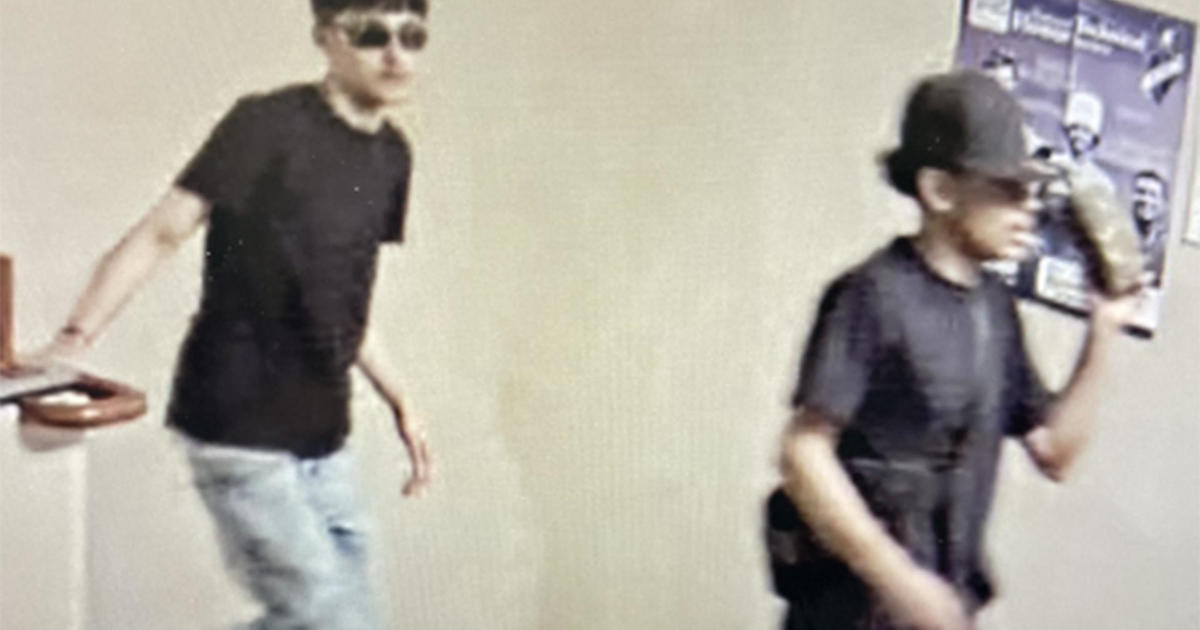Fort Collins PD Maintains Commitment To Body-Worn Camera Program
FORT COLLINS, Colo. (CBS4) - In addressing questions, and sometimes complaints, from the members of the public regarding officers' use of body-worn cameras, Fort Collins police Thursday maintained their commitment to their video program and informed city residents of a future goal to one day outfit all 130 patrol officers with the devices.
More than two dozen people turned out for the first public discussion and Q & A session on the subject since late last year, when Fort Collins City Council approved $182,000 in funding for 40 additional body worn cameras and the maintenance of 20 cameras already in service.
The meeting was held at the offices of The Coloradoan, on Riverside Avenue, and free to attend.
How a body worn camera works
Officials with City of Fort Collins Police Services, including Chief John Hutto, started the meeting by explaining how the cameras work. Captain Cory Christensen explained that officers activate body worn cameras by, like most devices, pushing a button. The camera has a 30 second buffer window, which means it starts recording video back 30 seconds from the time the activation button is first turned on.
In those initial 30 seconds, Christensen said, the camera does not record audio, but only video instead.
Officers wear the camera at eye level. It's attached by magnet to a type of headband. The camera is hooked ip to another device that is worn on the officer's belt. A red light blinks while the camera is rolling. Video is recorded digitally onto an SD card.
Christensen says the offier never has direct access to the video he or she is recording because it gets automatically uploaded to a secure server.
Costs and operations
The city council-approved $182,000 budget for body worn cameras covers the cost of the 20 cameras already in service, and the purchase of 40 additional cameras set to arrive by early summer, according to police. That funding also covers service and maintenance on the cameras over the next five years.
Policies governing body worn cameras
The Fort Collins Police Services' standard operating procedure dictates how and when officers use the cameras. It was also the most contentious topic during Thursday's discussion.
The policy dictates when an officer can and should turn a body worn cameras on and off. Generally, Chief Hutto says, when an officer comes into contact with a citizen, the camera should be rolling. He says he responded to community input in deciding to give officers discretion to turn cameras off during community interaction.
One participant asked if a domestic violence, rape or assault victim asked the officer to turn the camera off, could they opt out of being recorded?
"Maybe," Chief Hutto said, adding that sometimes it is necessary to write down and photograph things that capture people at the worst moment of their lives, in order to investigate their case.
"That's precisely why that discretion was put in there," Hutto said.
Some members of the crowd suggested creating a rule that officers must identify themselves and verbally announce when cameras are rolling. Chief Hutto was reluctant to incorporate such a policy into his standard operating procedures.
Citing a lack of expectation of privacy in public, Hutto said he did not want to require officers tell people they are recording them in order to use the cameras.
"At this point, there's not a compelling reason to do that," Hutto said.
City councilman Gerry Horak suggested a compromise: asking Hutto to make it not mandatory, but advisory that officers indicate to a citizen when a body worn camera device is on and record. Hutto said he'd consider that idea.
If someone doubts what the video an officer is recording on a body worn camera shows, a smartphone app enables that officer to download, stream, and show the suspected offender.
Fort Collins Police say the video is treated as both evidence and an offical record, meaning proscecutors get to weigh in on whether it gets released publicy. Ultimately, under Colorado law, the police chief also has discretion to decide what gets released.
How long they keep the video depends on what it documents, Christensen said. If the video captured a homicide, police would be likely to keep that video indefinitely. Any video recorded during contact with a citizen that does not show criminal activity occuring is retained for up to 30 days, he said.



